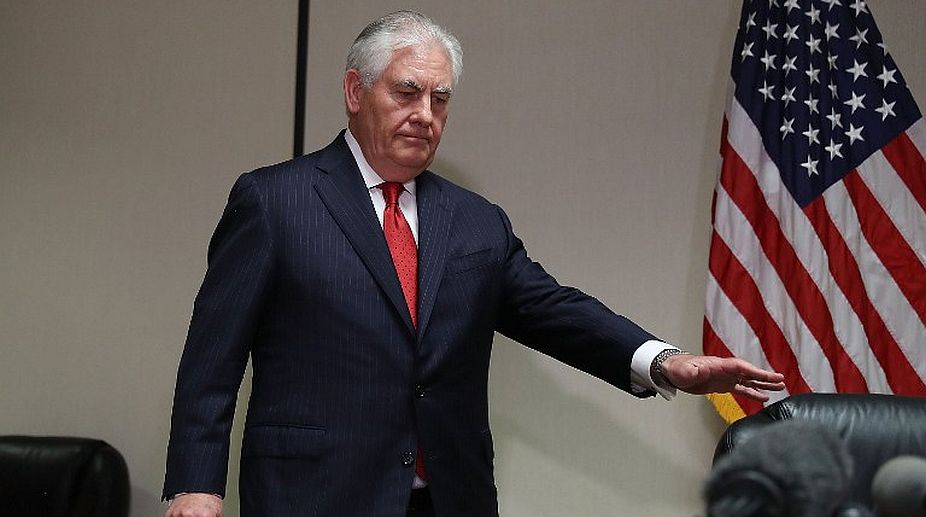US exit gives WHO chance to reform
Donald Trump’s plan to withdraw the United States from the World Health Organization (WHO) has been met with dismay in the public health field.

Rex Tillerson (PHOTO: AFP)
Donald Trump has swung the axe after a series of inter-personal clashes. The removal of Rex Tillerson as Secretary of State bodes ill for US foreign policy, most importantly barely two months before the historic talks with North Korea.
Not that the dismissal and replacement with the CIA chief, Mike Pompeo ~ said to be a “disturbing choice” ~ was wholly unexpected. The talk of a change at the helm of the administration had begun when Tillerson’s reported insult was revealed last year.
Advertisement
That wasn’t exactly “fake news” as Trump had initially imagined. To that can be added his contrary perceptions on US policy towards North Korea and Russia.
Advertisement
Tuesday’s removal and replacement have served to lengthen the loop of changes in the Administration, and the discord within would suggest that the feisty President and his cabal are not always on the same wavelength.
All too often has the applecart been rocked fair and square by the ebullient Head of State. In the net, his Administration rests on an uncertain foundation just as his policies are unpredictable.
Tillerson’s extraordinary dismissal mirrors the chaos and conflict. It was swiftly followed by the removal of the President’s personal assistant, reportedly under investigation by the Department of Homeland Security for serious financial crimes.
Only days ago Gary Cohn, Trump’s top economic adviser, and communications director, Hope Hicks, had reached a parting of the ways with the White House.
When Tillerson called his boss a “moron”, he was arguably echoing what many others think. The changes happen to be the latest in a record number of resignations and sackings ever since the inaugural in January 2017.
The removal of the Secretary of State came hours after he called the poisoning of former Russian spy Sergei Skripal a “really egregious act” that appeared to have “clearly” come from Russia. President Trump has been predictably muted on the development.
The administration’s claim that the change will benefit the planned talks with the North Korean leader, Kim Jong-un, is a feeble attempt to deflect the focus from a subject of riveting interest.
The change undermines diplomatic finesse just when it is most needed for the challenging and high-stakes negotiations. The selection of Pompeo, an outspoken critic of Iran’s nuclear deal, carries a message to Pyongyang ~ it ought not to entertain much hope of progress in any agreement that might be reached in May.
It intensifies the deep concern that Trump can be expected to follow through on his threat to pull out of the Iran agreement on nuclear proliferation and resultant sanctions.
Furthermore, President Trump reportedly has plans to replace Pompeo with his deputy, Gina Haspel ~ alleged to have played a pivotal role in the use of torture at “black sites” after 9/11 and the destruction of videotapes recording interrogations. Will the changes be enduring? President Trump has for now woven a tangled skein of diplomacy and state policy.
Advertisement